
THE DOG MENTOR
In July 2022, we worked alongside The Dog Mentor Jenny Duckworth to train 7 dogs to become mentors. https://www.thedogmentor.co.uk/
We are excited to have our dogs with us in school in lessons, interventions and providing individual mentoring sessions.
Why Are Dogs In School?
To work with children and staff within the school to create a positive impact. By working alongside the dog and learning how to become a good trainer, both staff and children experience the values and techniques that help develop:
- Communication
- Self control and confidence
- Discipline and Resilience
- Empathy and Relationships
- Focus and Concentration
- Stress Coping Strategies
In School Experience
How to behave around dogs in school:
- Always ask the handler if you can stroke
- Don’t get too excited – always approach dog calmly
- No loud voices – no shouting the dog’s name
- No screaming with excitement to see dog
- Try not to run
- No eating around dog – also please do not drop food or litter
- Always wash hands after being with dog
- Always make the handler aware if you are allergic to dogs
- Always let the handler know if you’re worried about meeting dog
THE DOG MENTOR – YOU HAD ME AT HELLO
The Dog Mentor programme has built upon the benefits of the human-animal bond by providing
students with positive experiences with dogs that can help them:
- Educationally
- Developmentally
- Emotionally
- Socially
Over the last five years The Dog Mentor programme has been proven to have a positive impact on students in all areas including:
- higher self-esteem
- greater empathy
- more engagement with peers
- better prosocial behaviour
The positive impacts created by the Dog Mentor programme follow the premise that improving communication within schools will improve behaviour. This, in turn will provide an improved outcome for staff, parents and more importantly students.
Meet our team!
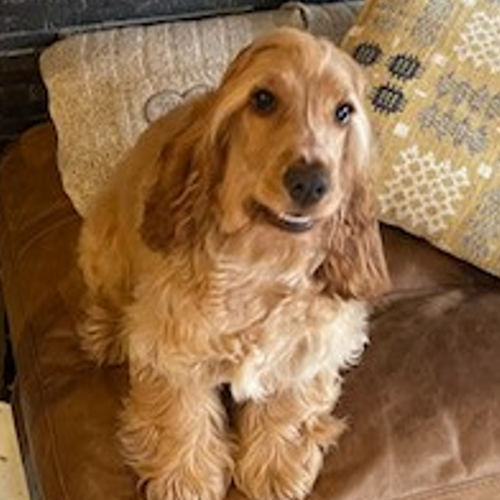
Lottie
Hi guys, I’m Lottie!
I’m a one- year old Cockerspaniel. I live near the sea so I love walking on the beach or the dunes, getting the sand between my paws. I also love playing fetch with my ball in the waves. I am a bit anxious and bark a lot when I meet or see someone new, but when I get used to them, and know they are no danger, I love them very much. The best way to help me get used to you is to ignore me completely and not approach me; let me come to you.
When I am ready for you to come to me, do so by getting low on the ground and turning to the side so you’re not looking directly at me.
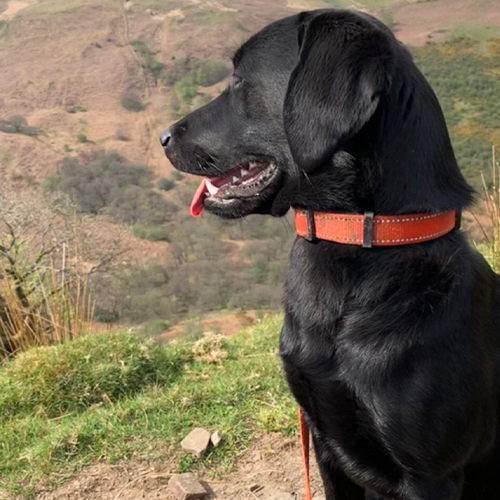
Molly
Hi I’m Molly the Labrador
I’m the baby of the group even though I’m the biggest and strongest dog in the school: in fact I’ve only just turned one! I’m very playful but nosey and inquisitive too, watch I don’t take you on an adventure. I like to learn new tricks and I love treats. I’m super enthusiastic and really loving, I might bark but that’s just me saying hello. I’m always excited to go for a walk but when I’ve had a busy day, I like to have a snooze.

Little Mac
Hello, I’m little Mac the lazy Westie.
I loooove food and I’m an expert in finding snacks so make sure you don’t drop litter because I might eat something I shouldn’t. I’m a wise old boy, I know a few tricks but I’d rather have a walk, a smooth and the easy life. I’ve got a big brother called Jock but he’s too grumpy for school, I also live with Molly, she keeps me busy and stops me feeling old. My favourite hobby is watching TV, I don’t like the rain so if it’s raining in Treorchy, I’ll just enjoy a peep out of the door or window.
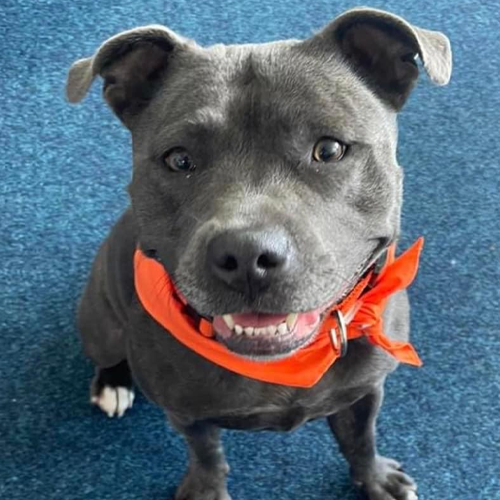
Mabel
Hi Guys. I’m Mabel!
I will be your very loving and friendly Dog Mentor. I am super confident, so not much bothers me. I am a bit dopey and clumsy – much like a bull in a china shop! I’m still very young, so I can be very lively and playful for the first 5 minutes of meeting you!
I love getting to know people (especially children) and other dogs. I am extremely kind and love attention. I am also very greedy (- I can’t help myself!), so please don’t drop any litter because I will try to eat it and it could harm me.
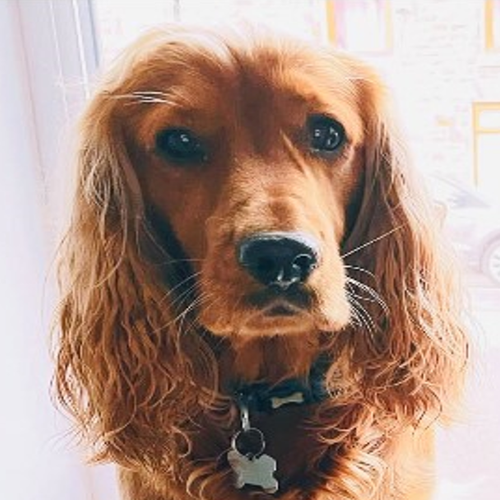
Bailey
Hia Everyone!
I’m Bailey, and I am Banjo’s big fur-brother…. Also known as the quiet and sensible one of the pair.
I love to be pampered, but most of all I love to learn and please. I’m calm and collected, but throw a ball for me and I will play fetch with you all day long.
I can’t get enough of running up the mountain or on the beach, and I love to swim.
I can’t wait to play and be best friends. I like lots of fuss, so don’t be shy.
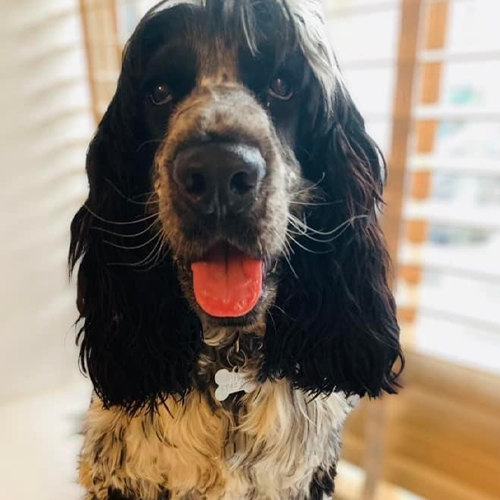
Banjo
Hey Everybody! I’m Banjo, and I am Bailey’s baby brother.
I am a firecracker! Full of energy, always on the go and a little bit noisy… but that’s just my way of letting you know I’m here, as I just LOVE a fuss! Tickle me at the back of my neck or ears, and I will sit with you (or even sit on you) all day.
I love to learn and will do anything for a treat. Carrots are my favourite!
My favourite things are to run, play, dig and chew.
I can’t wait to make friends with you all. Did I mention I love treats.
IMPROVED COMMUNICATION
Any behaviour is a form of communication. It is essential to understand what the behaviour exhibited is communicating.
The key difference in achieving improved communication is not in the message that is being promoted, it’s in how the message is promoted.
We use dogs in schools as a tool to impress on people this message. Using a trained dog, we are able to change any
environment as a positive distraction. This enables us to work with anybody to enable them to understand the positive
skills of communication.
IMPROVED BEHAVIOURS
On a practical level, we enable all students and staff in the school to
- change their mindset into a positive one at all times
- improve rapport skills within the school environment
- understand that behaviour is a form of communication
- realise that mind and body communications affects our behaviour
- experience life and process it via all five senses
- improve personal growth and development in a way that affects all aspects of their lives such as in-work, at-home and external relationships outside of school
IMPROVED OUTCOMES
The overall target is to improve the personal development for all students so that they are more productive in a positive learning environment.
This will lead to greater achievements both at home and in school. More specifically:
- raising standards and accelerate progress
- improve the quality of teaching and learning across the entire school
- improve the conditions for learning
- to improve skills such that the impact has a lifelong affect
Frequently Asked Questions
Questions and concerns are inevitable when it comes to introducing a new and perhaps perceived radical programme into a school. Most frequently asked questions relate to the following areas:
• Legal Implications and Liability
• Allergic Reactions
• Risk Management
The reality is that all of these objections can be adequately mitigated when schools do their homework, prepare teachers and students properly, communicate clearly with parents, and work with qualified and competent therapy dog organisations like The Dog Mentor.
By comparison, numerous health centers such as hospitals are using therapy dogs and their requirements may be even more demanding.
Legal liability
The Dog Mentor is fully insured to work with dogs as a therapy medium with full Public Liability and Professional Indemnity insurance coverage up to £2,000,000.
Allergic reactions
Parents and educators may be concerned about potential allergic reactions to dogs within the school environment. The Dog Mentor ensure full cleanliness and grooming requirements minimizing allergic contact. Students with parental consent voluntarily participate in the dog mentor programme thus avoiding risky contact. Staff, visitors and children known to have allergic reactions to dogs must not go near the dog. All visitors will be informed on arrival that there is a dog in school.
Risk Management
- Supervision – The Dog Mentor will supervise the dog at all times, children will not be left alone with the dog. The dog will be kept on a lead when moving between classrooms or on a walk and will be under the full control and supervision of the trained Dog Mentor.
- Animal maintenance – The Dog Mentor requires regular veterinarian checks for their dogs along with regular evaluations of their handlers to maintain their certification status. The Dog Mentor handlers are trained to watch for potential harm to either a child or their own dog and are primarily responsible to manage the animal when on site.
- Hygiene – In the interest of health and hygiene The Dog Mentor will ensure the dog is toileted when taken out for short walks in the grounds. Only staff members will clear this away appropriately leaving no trace on the ground, cleaning the area with disinfectant if needed.
- Fear of dogs – Some children have a fear of dogs, these fears may be based on prior negative interactions or from parents warnings to be careful around dogs which instils an emotional response of anxiety. The Dog Mentor programme is implemented by permission or voluntarily, and only in areas where unwanted contact with a dog can be avoided, the fear issue can be minimized. Experience and research has also shown that with proper guidance and handling, children can learn to overcome their fear of animals and with it, grow in respect and appreciation of them.
